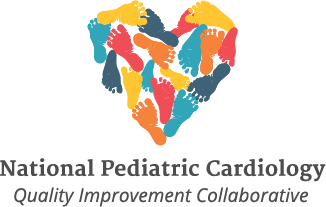
How To Use NPC-QIC Toolkits
How To Use NPC-QIC’s Toolkits is a short guide to assist your pediatric cardiology center to achieve your improvement goals related to NPC-QIC’s improvement work. Thinking through each section outlined below will position quality improvement teams to maximize the learnings shared within each toolkit.
Sections:
What are we trying to accomplish?
Selecting a Multi-Disciplinary Team
Understanding Improvement Opportunities & Root Cause
How will we know that a change is an improvement?
What changes can we make that will result in improvement?
Developing Ideas/Interventions: Using NPC-QIC Project Specific Toolkits
PDSA Testing and Implementation
Action Plan
How To Use NPC-QIC’s Toolkits
Links to available toolkits:
Gross Motor Toolkit
Interstage Change Package
Pre-Operative Oral Feeds Toolkit
Tube Weaning Toolkit
Background
The NPC-QIC Toolkits are designed to give centers evidence informed strategies and tools to improve processes and outcomes utilizing Quality Improvement methodology. These toolkits are topic-specific based around NPC-QIC’s Network KDD with the goal of improving survival and the quality of life for infants with single ventricle congenital heart disease and their families. Using PDSA testing will help your quality improvement team test these ideas locally on a small scale with the goal of eventually adopting the practice and spreading.
Resource
What Are We Trying To Accomplish?
A few key criteria to selecting a project include determining if the project is related to a key business issue within your institution as well as determining if management would give the project high priority. Before diving into the toolkit, it may be helpful to review your center’s data to understand where there are opportunities for improvement and where you center might benefit from improved outcomes.
NPC-QIC network data can be accessed in automated reporting for member institutions. Once the problem or improvement opportunity has been selected, it’s important to clearly define the project using a charter. A charter will assist the team in setting the boundaries of a project including: beginning and ending dates of the project, key measures related to the problem, and setting the core members.
Resources:
Selecting a Multi-Disciplinary Team
A collaborative, multidisciplinary team could consist of (but are not limited to) the following roles:
Bedside nurse
Nurse educator
Data Analyst
Parent/guardian
Lactation consultant
Feeding therapist
Physical therapist
Social Worker
Care Coordinator
Cardiologist
Cardiothoracic surgeon
Cardiac critical care physician
Using local data can assist with identifying the right multidisciplinary team and building consensus for a quality improvement project. If disparities are identified, it’s important to select team members representative of the segmented population of concern to inform all phases of the improvement project. A stakeholder analysis will assist your QI team by identifying the extent to key team members will be impacted by change. NPC’s Community Building and Engagement workgroup has developed a template designed to incorporate parents and families in local QI improvement.
Resources:
In March of 2022, NPC-QIC hosted an Action Period webinar that featured the QI team at Children’s Wisconsin sharing how their center reviewed NPC-QIC data to build consensus and identify the right team members to join the Unplanned Reinterventions project. You can access that webinar here as a resource for your institution
NPC-QIC Community Building and Engagement Committee Parent Engagement Tool
Understanding Improvement Opportunities and Root Cause
A key component on the improvement journey includes understanding a process and sequence of events connected to the outcome. Completing a process map or flow chart enables a team to visualize the process and identify unexpected complexities, problem areas, and where simplification or standardization may be possible. After a process has been mapped, important questions to ask include “What gaps and or challenges did my institution identify?”, “What are the root causes of these gaps or challenges”? Answering these questions positions your team to identify ideas and interventions that are targeted to addressing the root cause of the problem identified.
Using the simplified failure mode effects analysis with equity tool (resource listed below) will allow your team to identify inequities in your current process and well as brainstorm equitable interventions. Be sure to include parent and family representation in addition to representation from the segmented populations identified from the data review. The voice of the customer will be crucial to identifying root causes to inequities and proposing equitable interventions.
Resources:
Cardiac Networks United: Basic QI Lectures
Tube Weaning August 2020 Webinar on Process Mapping
How Will We Know If A Change Is An Improvement?
After looking at your data, review the interventions and tools within the toolkit to see which might have the biggest impact for your center. Each toolkit provides a measurement section which suggests outcome and process measures that can be tracked over time to determine if the interventions will lead to improvement at your institution. It is important to segment the patient population by demographic data to illustrate potential disparities that may exist. The completion of a project charter will also assist your team in developing a SMART aim (specific, measureable, achievable, realistic, and timely) for improvement.
Resource:
What Changes Can We Make That Will Result In Improvement?
After identifying current state and root causes to the problem identified, each NPC toolkit serves as a resource of evidence-based ideas and interventions to eliminate or reduce the impact of root causes. The process of using each toolkit at your local institution should be transparent and inclusive allowing buy-in and a necessary culture shift to standardize practice and improve patient outcomes.
NPC-QIC project toolkits are built upon each project’s improvement theory, subject matter expertise, and a comprehensive literature review. Because new ideas surface in the literature all the time, your team might want to conduct a brief literature review to determine if new research could inform additional ideas for improvement. If your institution is seeking to reduce variation in inequitable care, a literature review may also assist with developing testable ideas for improvement.
Within NPC-QIC there are also several ongoing opportunities for your institution to exchange and learn new ideas for improvement with other pediatric cardiac centers. Review the NPC-QIC engagement infographic (below) to learn how your institution can engage with our current improvement projects and all teach all learn webinars. You can also reach out to NPC-QIC member center through the network contact list here.
Resource:
December 2022 Action Period Webinar on the Tube Weaning Toolkit Implementation and how Colorado Children’s improved local outcomes.
NPC-QIC Engagement Infographic
Case Conference Webinar Archives
NPC-QIC Center Contact Directory
PDSA Testing and Interventions
Once your center has identified the right ideas and interventions for improvement you can begin to test ideas. Plan-Do-Study-Act cycles are a repeatable set of steps that a team can learn and follow to determine if the ideas proposed will result in improvement. Testing ideas allows for trying and adapting knowledge on a small scale.
In March 2021, NPC-QIC hosted a webinar on the basics of PDSA testing and building PDSA ramp cycles to test changes. To learn more about how you can begin PDSA testing at your center, click here to access the webinar recording and materials.
The QI team at your institution can determine the duration of PDSA testing or whether immediate implementation of an intervention is most appropriate.
Resources:
Roadmap To Action
We have provided an action plan template for your team to map out the next steps forward after reviewing your site’s local data to determine an area of priority. Use this plan as a tool to jump-start you improvement efforts.
We’d like to learn from you as your center begins to test and implement the strategies outlined in NPC-QIC toolkits. Please reach out to info@npcqic.com once your team has completed your action plan. You can also post action plans to on the NPC-QIC SharePoint site to share your learnings and request assistance from NPC-QIC and other centers.
